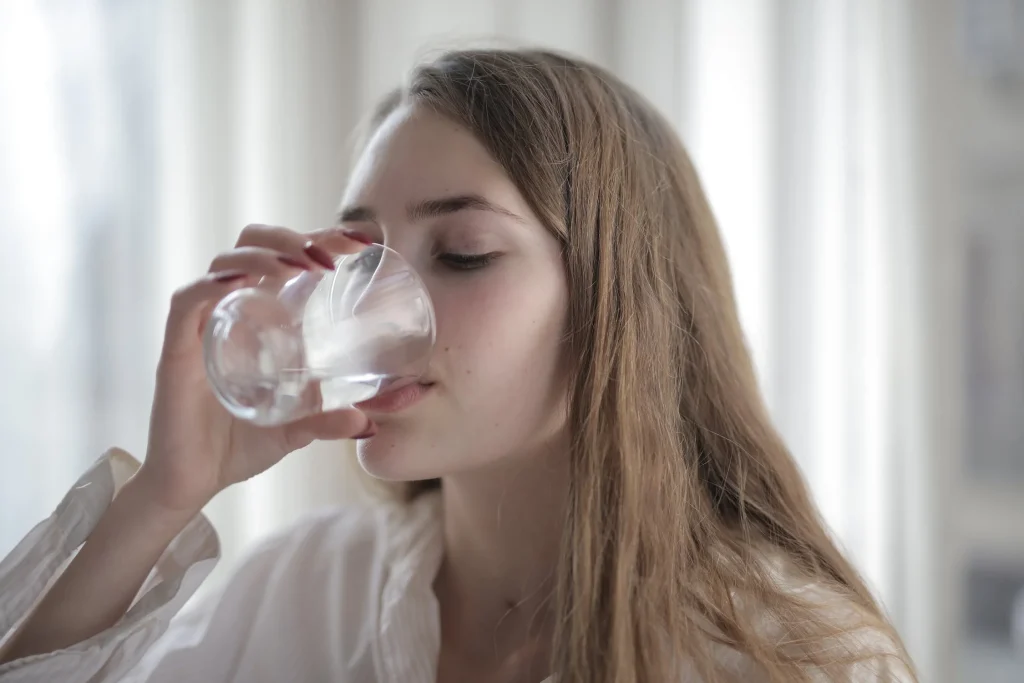
Having access to clean, uncontaminated water is a rarity in many countries. However, Americans are fortunate enough to have one of the safest and most reliable drinking water supplies in the world. Yet, there have been water contamination problems in cities such as Mississippi and Flint.
Contaminated water is unsafe for everyone, but it could be especially detrimental to expectant mothers.
In-utero exposure to contaminated water makes children vulnerable to a host of health issues. Some of these include skeletal abnormalities, fetal neurotoxicity, and preterm delivery. For this reason, moms-to-be must avoid drinking tap water.
In this article, we’ll explore a few common contaminants found in tap water and how to ensure you drink safe water.
Some Common Contaminants Found in Tap Water
Generally, tap water is considered safe for drinking. However, in certain cities and states, the crystal-clear water that runs out of the tap contains contaminants at high levels. Drinking such contaminated water can result in health issues in pregnant women.
A few common water contaminants that could result in complications in expectant mothers are as follows:
1. Benzene
You might not be aware of it, but your neighborhood well water can contain benzene.
As per the Agency for Toxic Substances and Disease Registry, drinking water has benzene, but in low amounts, i.e., 0.1 ppb. Studies in animals have reported that exposure to benzene can harm the developing fetus. These effects include bone marrow damage, delayed bone formation, and low birth weight.
Benzene leakage from hazardous waste sites, landfills, and underground gasoline storage tanks contaminates drinking water.
Recent findings from NIH link in-utero maternal exposure to benzene to the metabolic imbalance in the offspring. While no changes were observed in body composition or weight, the study reports reduced parameters of energy homeostasis in four-month-old male and female offspring.
Early studies reveal that benzene exposure during pregnancy could increase a child’s risk of leukemia.
Camp Lejeune’s water contamination tragedy deserves mention in this regard. Several children born to veterans exposed to the contaminated water were diagnosed with leukemia. Studies have reported that the base’s water supply contained high levels of benzene. Scientists discovered this fuel additive at levels of 380 parts per billion.
While the well water was contaminated during the 1950s, TorHoerman Law asserts that dangerous compounds and toxic chemicals were discovered in the groundwater and drinking water in 1982. However, Camp Lejeune veterans weren’t notified about the contamination until 1985.
A few years ago, seeking justice was impossible. Thankfully, the passing of the Camp Lejeune Justice Act in 2022 made it easy for victims to claim compensation for injuries sustained due to exposure to contaminated water.
Lawyers have ascertained that settlement amounts could range between $100,000 and over $1.3 million.
2. Lead
Lead is another toxic chemical found in drinking water. Corrosion in pipes is the major source of lead in tap water.
Exposure to elevated levels of lead during pregnancy has been linked with impaired neurodevelopment, low birth weight, spontaneous abortion, and gestational hypertension. An NIH feature has revealed that lead exposure can result in preterm delivery and preeclampsia (complications in pregnancy such as high blood pressure).
3. Pesticides
Maternal exposure to pesticides has been associated with adverse pregnancy outcomes. According to a meta-analysis, a ten-fold increase in pesticide concentrations was linked with an increased risk of preterm delivery. It also found a link between a shortened gestational age at birth and pesticide exposure.
Improper disposal of pesticides and pesticide spills causes them to reach water-bearing aquifers.
Recent research by NIH has discovered a link between maternal pesticide exposure during pregnancy and the increased risk of having offspring with ADHD. Some studies have identified that exposure to chlorpyrifos, p, p’-dichlorodiphenyldichloroethylene, and pyrethroids increases the risk of ADHD in offspring.
Ways to Ensure You’re Drinking Safe Water During Pregnancy
Considering that it’s easy for chemicals to enter well water, we advise pregnant women to get their tap water tested. Test strips available on the market are reliable, so you can use them to test your tap water.
If you’ve tested your water and the results show it is contaminated, there are certain changes that you can make to ensure it’s safe for drinking. They are as follows:
1. Install a Water Filter
Investing in a water filter is an excellent way to filter contaminants from drinking water. However, there isn’t a one-size-fits solution when it comes to water filters. Go for a water filter that specializes in filtering contaminants present in your tap water.
2. Boil Water Before Use
If your home’s drinking water is contaminated by bacteria, boiling it before use will eliminate them. Note that boiling will only kill bacteria, not eliminate lead, arsenic, or other contaminants found in water.
3. Buy Bottled Water
Another excellent way to ensure you’re drinking safe water is to buy bottled water. Always go for bottled water with NSF certification on its label. This demonstrates that the bottler follows industry practices and regulatory requirements.
To recapitulate, tap water is considered safe for drinking for pregnant women. However, doing a bit of research about the water quality is always a good idea. Also, get your tap water tested to determine which contaminants are present, if any. Investing in a water filter is also a good idea. That way, you will know that the water you drink won’t harm the developing fetus.